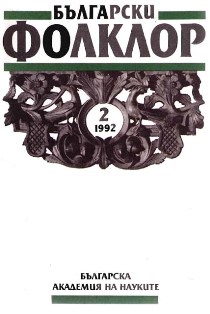Хлябьт – ключ, който разделя и събира човешки светове
The Bread – a Key Separating and Uniting Human Worlds
Author(s): Tsvetana GeorgievaSubject(s): Anthropology
Published by: Институт за етнология и фолклористика с Етнографски музей при БАН
Summary/Abstract: From the multiple historic data about the Balkans it becomes clear that during the second half of the 16th century through the usage of bread the theoretically incompatible European and Asian civilizational models had become very close to one another. The fresh traces of this old tradition are to be discovered in the region of the East Rhodopes. In that area for a long period of time Bulgarian Christians and Muslims, Turks – Sunnits and Alevis, Gipsies – Christians and Muslims, and a few Armenians have been living together. Up to the early 30s of the XX century bread had been the main food in the region. In their sacred models of nutrition, however, the Christian and the Muslim religious communities definitely distinguish themselves from one another. While in the Bulgarian Christians’ culture the bread is a link between the past, present and future, a rallying point of sacrality and profanity, a key with which the man maintains the universal order and his own life, in the Islamic sacred model the bread is not included. The Pomaks still preserve the sacred function of bread in the rites de passage. In everyday life bread is the link and in sacrality it is the distinguisher of the two religious communities.
Journal: Български фолклор
- Issue Year: XVIII/1992
- Issue No: 2
- Page Range: 3-12
- Page Count: 10
- Language: Bulgarian
- Content File-PDF

